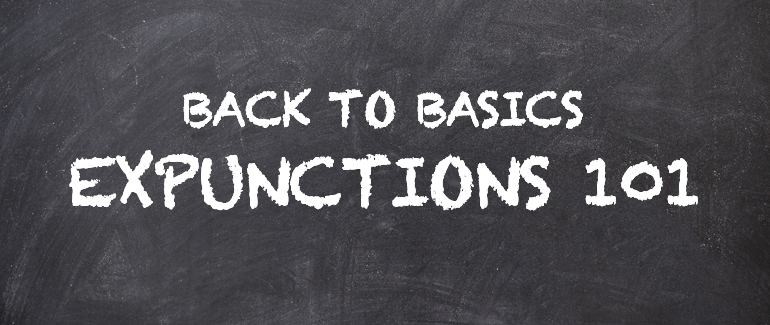As with any clerical process, petitioning for an expunction can be complicated. It’s easy to tell yourself that the whole ordeal sounds too complex for you, but it’s ultimately worth it because of the lasting consequences of a criminal charge. Learning about the procedure can give you a better overall understanding of the situation. Here’s a crash course.
- What is an expunction?
An expunction, also called expungement, is an order to remove all arrest records. With an expunction, agencies are notified and forced to destroy any and all records relating to an arrest. It is wiped from the system and won’t show up on any future background checks.
- What is the legal effect of an expunction?
After an expunction, the arrest or conviction doesn’t have to be disclosed. You can omit the arrest from applications and even deny it under oath. The records are unavailable through state or federal repositories, so you can live as if the arrest never happened.
- What is the difference between an expungement and an order of non-disclosure?
An order of non-disclosure causes your record to be unavailable to the public but doesn’t actually destroy the records. This means that, unlike an expunction, police, governmental agencies, and some licensing agencies still have access to the records. So an expunction hides your record from everyone, while a non-disclosure just hides it from the public.
- How long do I have to wait before seeking an expunction or non-disclosure?
How long you have to wait before filing for an expunction or non-disclosure depends on the classification of the crime. For a Class C misdemeanor offense, you have to wait 180 days from your arrest. For Class B and A, you have to wait three years.
- Why should I consider an expunction?
Why wouldn’t you? Removing an arrest or conviction from your criminal record will do wonders for your life. It will be easier for you to find a good job or home. Your finances will improve, you’re more likely to be approved for a loan, and you can even have your gun rights restored. Most importantly, it’s an important step towards escaping your criminal past.




